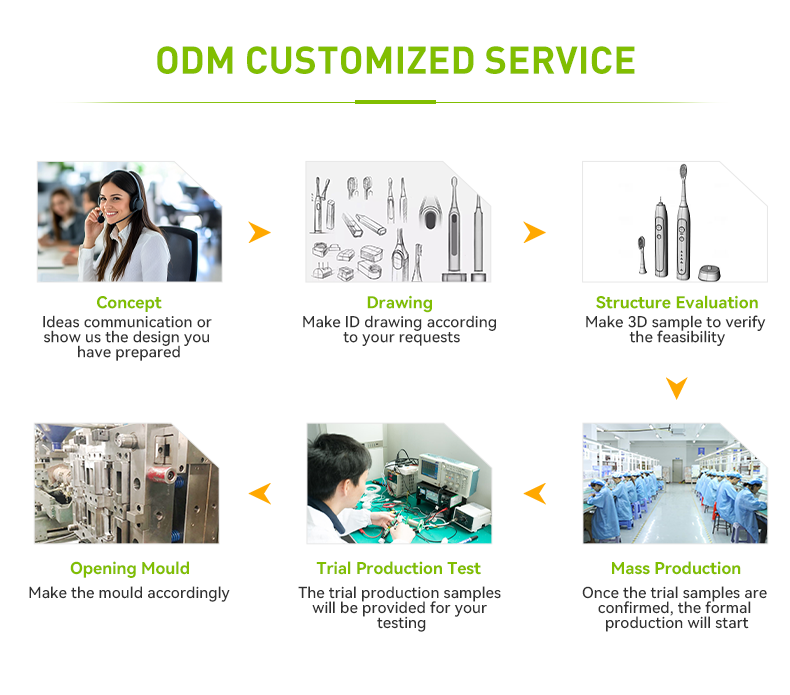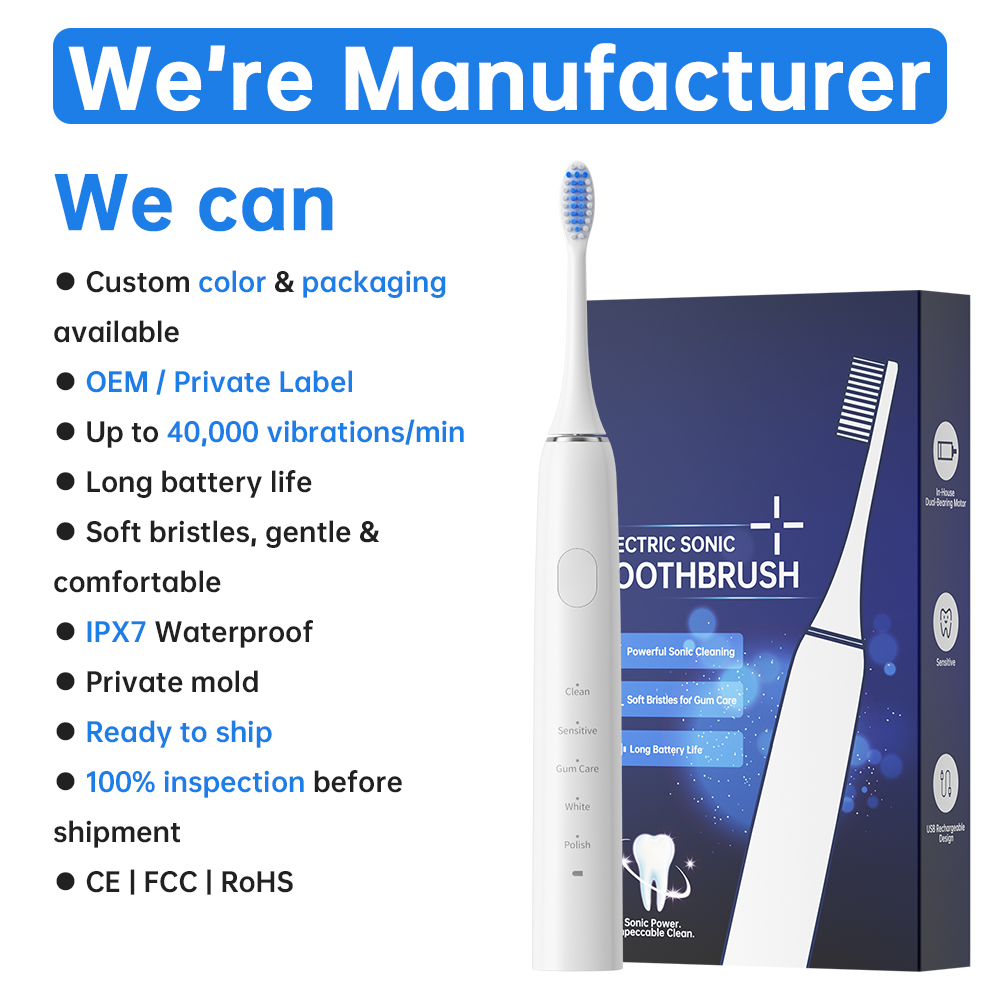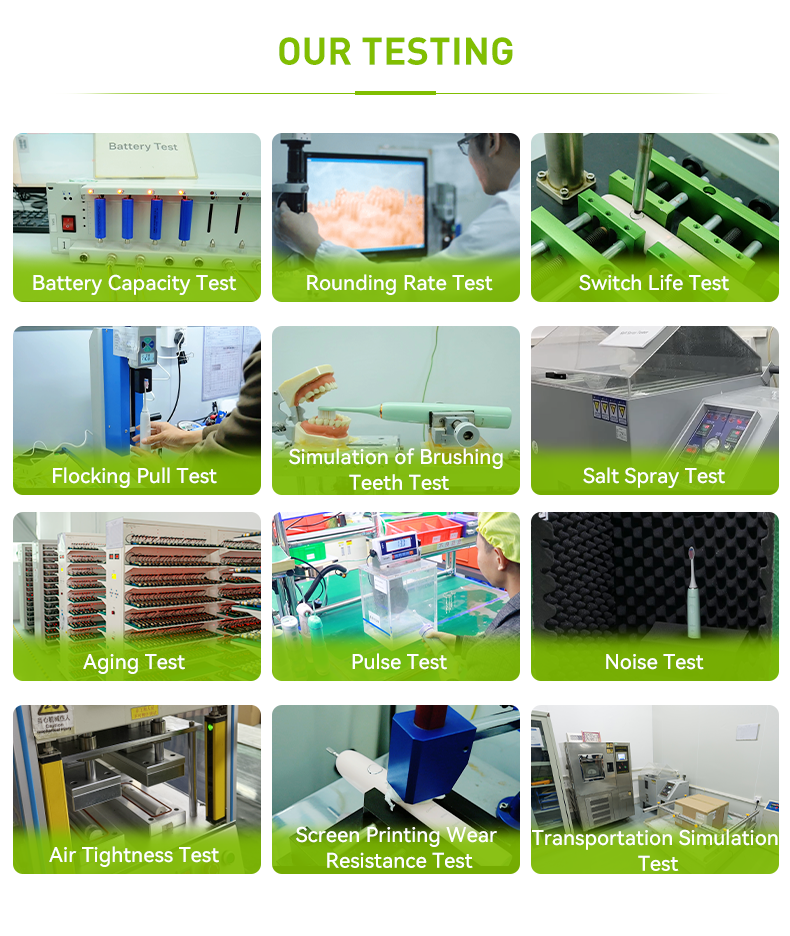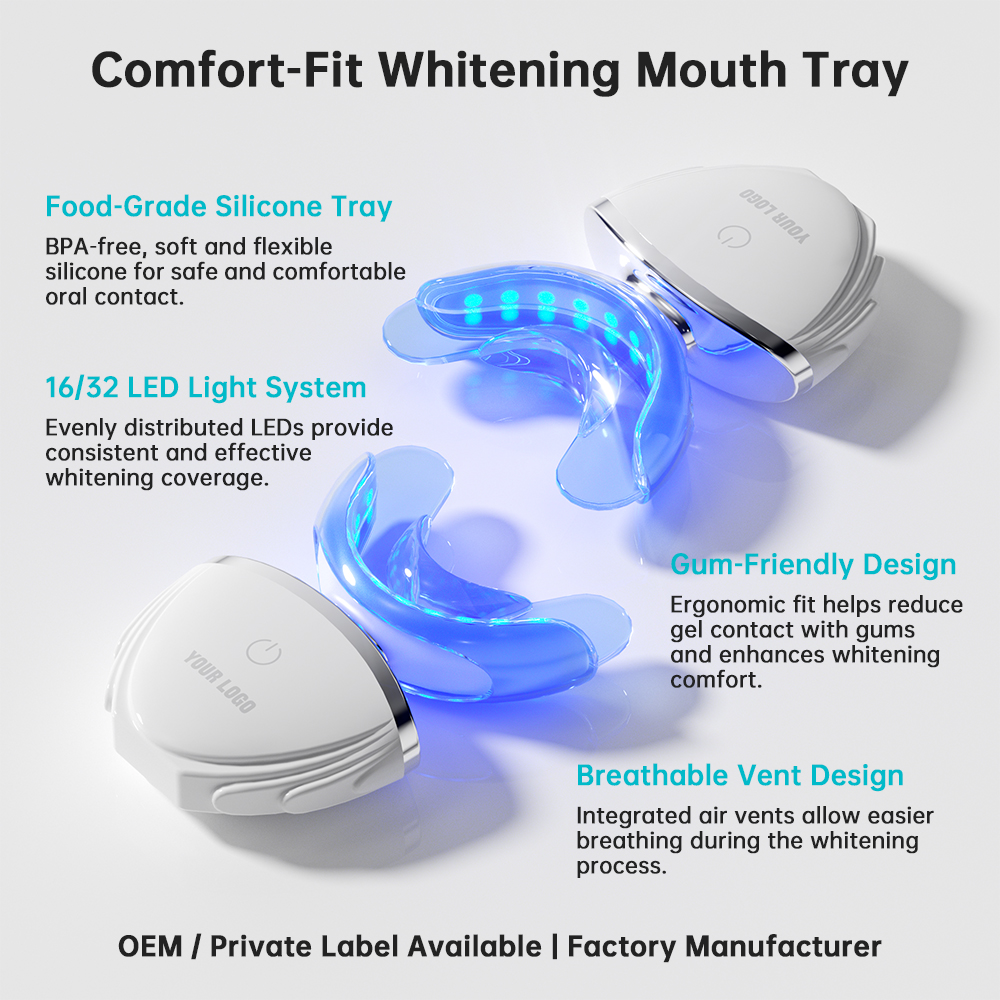Despite decades of oral health education, poor brushing habits remain a global issue. Many people brush for too short a time, often skipping key areas of the mouth. That’s where the 2-minute brushing rule—endorsed by dental professionals worldwide—comes in. Yet knowing what’s “right” doesn’t always translate into action.This is why smart timer features are becoming essential in the next generation of oral care tools. For private label toothbrush brands looking to launch or enhance product lines, smart timers are not just an added function—they are a key differentiator that directly influences consumer behavior and long-term oral care habits.
A smart timer is a built-in function that tracks the duration of each brushing session. Most commonly, it’s pre-set to 2 minutes, and often paired with quadrant alerts (30 seconds for each part of the mouth). Some advanced timers even pause or change vibration modes to signal when it’s time to move on.
Incorporating this feature into a private label toothbrush encourages users to follow dentist-recommended routines. In many cases, this small addition leads to significantly better oral hygiene outcomes—especially for children, teens, and users with inconsistent brushing patterns.
From a behavioral standpoint, the success of smart timer toothbrushes lies in habit formation. Studies in health psychology show that consistent time-based cues—like vibrations or beeps—improve task completion and habit retention.
Therefore, adding a 2-minute brushing timer doesn’t just increase compliance. It actually reshapes brushing as a structured, mindful activity. This is a powerful tool for brands targeting customers who are seeking more control and guidance in their personal health routines.
For oral care brands, especially those entering the market with private label toothbrush products, adding a smart timer isn’t just a tech upgrade—it’s a strategic move.
Smart timers add perceived value with minimal cost increase, and they serve as a quality indicator. Additionally, they differentiate your product in a crowded marketplace, while aligning with professional dental guidelines. This makes it easier for consumers—and retailers—to trust and adopt your brand.
If you’re looking to develop or scale your toothbrush line, working with the right manufacturer is crucial. Your OEM partner should offer flexible timer configurations, such as:
Fixed or customizable 2-minute sessions
Quadrant reminders or pulse alerts
Multi-mode brushing support (e.g., Clean, Sensitive, Polish)
Moreover, the timer should be seamlessly integrated into the brush’s motor system—without increasing noise or disrupting oral care habits. Ask about firmware stability, user testing, and regulatory certifications when evaluating a manufacturer’s smart timer capabilities.
So, can smart timers improve brushing compliance? The answer is yes—if designed and deployed correctly. These timers do more than count seconds. They reinforce daily routines, enhance brushing accuracy, and help users achieve better long-term oral health.
For private label toothbrush brands, smart timers provide a meaningful edge. They show customers you care about results—not just design. When partnered with the right OEM, you can deliver a product that’s both intelligent and impactful, shaping better oral care habits one brush at a time.

What Are the Advantages of Cooperating with FDA certificated factories?

Top OEM Electric Toothbrush Manufacturer for Kids – Powsmart

Seeking full OEM/ODM Services backed by a reliable Global Logistics Partner?

Four Core Factors Brand Owners Must Pay Attention to When Choosing Competitive Water Flossers

Why is Quality Certification Support integral to a successful Contract Manufacturing agreement?

How Can Servo Motor Customization Optimize Precision in Brush Head Injection Molding for B2B Toothbrush OEMs?
.jpg)
Is Tooth Sensitivity with Enamel Erosion Whitening’s Side Effect?
.jpg)
Bristle Hardening Inducing Gum Recession – Brushing or Destroying?

IPX7 Waterproof Electric Toothbrush Manufacturing for Kids & Adults

How does Brush Head Mold Design influence the effective integration of Food-grade Bristle Material?
.jpg)
Can You Tolerate Brush Head Wobble with Battery Swelling?

Oral Care Brand Expansion Guide

Need a Custom Whitening Tray for a Gentle Sensitive Teeth Formula?
.jpg)
Gum Bleeding from Enamel Scratches – Time to Panic?

How Does the Powsmart Kids Toothbrush with Fun Timer Toothbrush Engage Through Games?
.jpg)
Gel Leakage Causing Chemical Burns – Still Ignoring It?